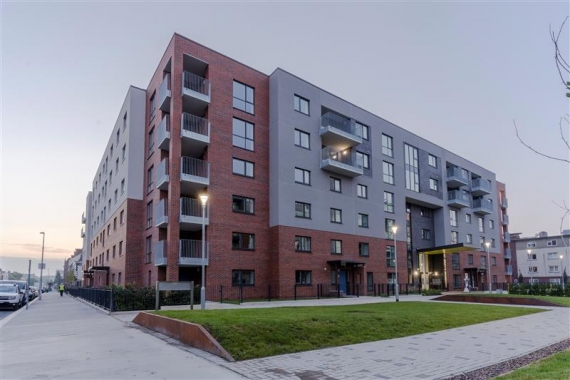Housing for All Plan to tackle affordability, address supply and reform housing delivery
Ireland lays out a new strategy for housing
Dublin, Ireland, 28 September 2021 | Economy, The future of the EU & Housing
In early September, the Irish government launched its 'Housing for All' plan with the aim to address the growing levels of housing unaffordability that Housing Europe's Observatory has been emphasising on in multiple editions of the 'State of Housing' report. Our member Karen Murphy, Director of Policy, Irish Council for Social Housing (ICSH) explains what is expected to happen in Ireland in the next 10 years and what is the role of the social housing sector.
‘Housing for All’ is a 10-year plan with 5-year targets and a funding commitment of €4b per annum. The scale of the plan reflects the nature of the housing crisis and deals with social housing, cost rental, affordable purchase and private housing. It also commits to ending homelessness by 2030 and implementing specific policies to assist with special needs housing provision. There are also many other actions, for example relating to climate change and systemic reform of housing funding and management, which are each important in their overall contribution to a better functioning housing system.
In the context of a long running housing crisis in Ireland, the Plan represents the Government’s current approach and ambition for improving housing delivery. Since its launch there has been much discussion on how and whether it will work.
The Plan is framed on four pathways. Within each pathway there are multiple actions and proposals to respond to the challenges of our enduring housing crisis. The four pathways are focused on:
- supporting homeownership and increasing affordability;
- eradicating homelessness, increasing social housing delivery and supporting inclusion;
- increasing new housing supply; and
- addressing vacancy and efficient use of existing stock.
In anticipating this new plan, it was hoped that it would provide a framework to re-balance our housing system in favour of one that provides affordability, security of tenure and a place of safety for all households regardless of their economic status. Housing for all does present an opportunity provide for sustained investment in social housing, cost rental and affordable housing which will provide more homes to people on low to moderate incomes. The key though is that investment is sustained over a 10 year period.
Affordability measures and targets
Given the nature of the housing crisis in Ireland, measures to address affordability and access to housing are essential elements of Housing for All. The Plan outlines targets for affordable housing provision of 4,000 Affordable Purchase homes on average every year for families, couples and single people as well as a new Local Authority-led Affordable Purchase Scheme, targeting average prices of €250,000.
A range of measures to improve the situation for people renting in the private rented sector includes a new cost rental scheme targeting 2,000 new homes per year as well as a range of other reforms to enhance the situation for tenants such as an extension of Rent Pressure Zones to 2024.
Approved Housing Bodies (AHBs) have begun to provide cost rental homes and welcome this increased scale for new homes in what is essential a new form of tenure in Ireland. As it is backed by legislation and multi-annual funding commitment, we would like to see this tenure become a significant part of the housing system.
The social housing target of 90,000 homes by 2030 can be achieved with the funding commitment in place and AHBs, together with Local authorities will seek to deliver on this target. AHBs are looking to provide a significant amount of the social and cost rental homes, with delivery of approximately 5,000 homes per year from the sector.
Addressing social inclusion and sustainability
To respond to the glaring gaps in our current system it is time to plan and provide for a range of purpose built, supported homes for older people and people with disabilities, people with mental health difficulties as well as increasing the number of one-bedroom homes being built. Utilising demographic data to underpin planning decisions will assist in the development of a wider range of accommodation profiles. The gaps in our housing stock reduce choice and flexibility and impair the quality of life for many. While the plan contains commitments in these areas there is a need for explicit targets for supported accommodation.
Implementation will be key to success
The Plan sets out the vision for reforming and improving our housing system with much of the detail to be worked through. Whether the Plan will be successful will come down to the implementation measures and project management of the targets and objectives.
The capacity of the construction sector will need to be enhanced to support the increased scale both of new homes and to achieve the retrofitting targets. Innovation in delivery methods such as volumetric build will also play a significant role in achieving scale over a 10-year period.
The Plan also commits to establishing a Commission on Housing to examine issues such as tenure, standards, sustainability, and quality-of-life issues in the provision of housing. It will also have a role delivering on the Government commitment to hold a referendum on housing. The Commission on Housing is welcome and will assist with areas of reform that require a long-term approach and which are often overlooked.
The AHB sector will play its part in delivering on the targets and while there will be challenges ahead in undertaking many aspects of this 10-year project, there will be no lack of drive or commitment.
Leave comments